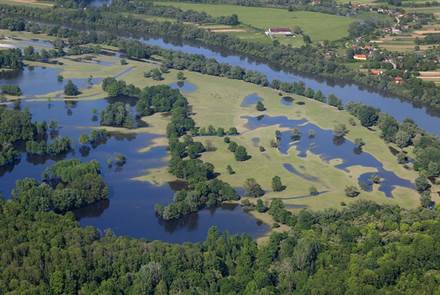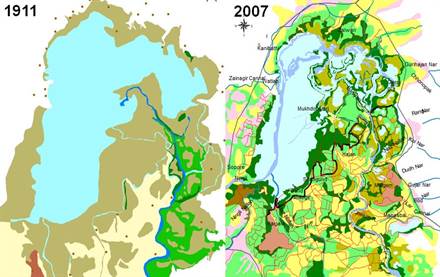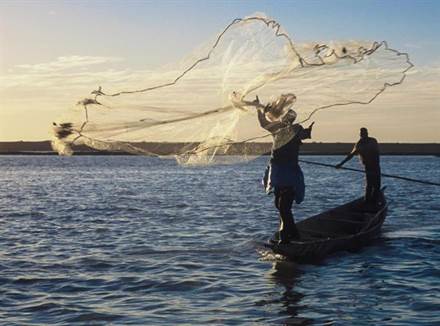
Scaling-up investments in natural infrastructure
Wetlands occur wherever water meets land. These deltas, marshes, rivers, lakes and watersheds are the water systems that link the natural world and human societies, and make it possible to clean, store and provide water to grow food and run businesses. As we prepare to participate in the 7th World Water Forum in South Korea, I want to bring attention to the need to scale up investments in wetlands as natural infrastructure.
Wetlands have the greatest value of any ecosystem for human well-being, yet they are the most rapidly degrading on Earth. In the last decades more than half of our wetlands have been lost through drainage and conversion and much of the rest have been degraded. Wetlands now face extreme threats as competition for land and water intensifies, while the cost to society and nature due to continued loss and degradation is huge and growing.
On the other hand, there is a growing awareness that positive action on wetlands can help to secure a sustainable water future for people and nature. This means more than just protecting special places, it means investing in functioning systems in the landscape – wetlands as natural water infrastructure. To make this happen, we develop knowledge and apply tools that inform decisions about wetland wise use and water sharing.

For example, last year’s flooding devastation in Kashmir, India was driven by wetland conversion and degradation. The largest freshwater lake, Wular Lake, formerly functioned as a large sponge that buffered against flooding and low river flows. Now 90% of the absorptive capacity is gone and flash floods result, impacting the poorest and most vulnerable whose livelihoods are directly dependent on natural resources. Our management plan, delivered to the State Government, offers a cost effective solution to reduce flood risk through wetland restoration.

Sustainable development requires wetland ecosystems
Around the world, the poorest people suffer most when wetlands are lost and degraded. Growing water risks and scarcity are driving societal conflicts and humanitarian disasters. To address these challenges, it is urgent that the value of sustaining wetlands is better recognised in development agendas, and the new 2020 Sustainable Development Goals (SDGs) are a good start. Building on the current Millennium Development Goals, the SDGs will set the post 2015 development agenda and drive government commitments and investment priorities in the coming years.
What’s clear is that the SDGs are not achievable without functioning water and wetland ecosystems.
Not just Goal 6: sustainable water and sanitation for all, but the top Goals 1 & 2: ending poverty and hunger and achieving food security. Key building blocks of these Goals, such as building resilience, reducing exposure and vulnerability to climate-related extreme events and environmental shocks, as well increasing the agricultural productivity and incomes of small-scale producers, are underpinned by the need to invest more in the conservation and restoration of wetlands in the landscape. In fact, sustaining and restoring water-related ecosystems is imperative for achieving many of the Goals.
The SDGs signal that action is needed to sustain and enhance the role of wetlands as natural infrastructure in all regions of the world and at all scales. But how can this best be achieved? In many of the river basins where we work it’s clear that re-engineering of existing structures and re-thinking of planned new infrastructure, like flood barrages or hydropower dams, is needed to optimise water sharing.
For example, it is vital to boost food and energy production in the underdeveloped countries of the Niger Basin in West Africa. However, our research shows that as originally planned, further energy and agri-developments upstream could trigger ecological and social collapse downstream around the vast Inner Niger Delta in Mali, where nearly two million people directly depend on seasonal wetlands for their livelihoods. We are engaging with governments, stakeholders and investors to advocate for an alternative approach that secures the natural flood pulse of the Delta as an economic engine and as part of the solution for regional food and water security and climate change adaptation.

Join us at the World Water Forum
Wetlands International offers knowledge and experience from our work around the globe and we are looking for new partnerships to scale up our impact in all regions. We will be co-hosting a session at the in the 7th World Water Forum in South Korea with WBCSD on Scaling-up investments in natural infrastructure. Join us on Tuesday 14 April to find out how restoring rivers and better managing wetlands as natural infrastructure is often a more cost-effective option than hard infrastructure alone.
